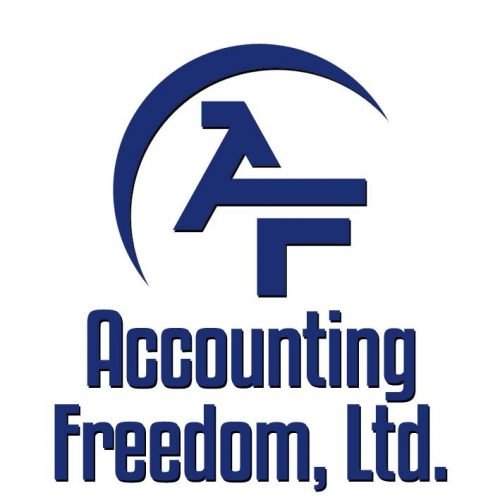Tax Incentives for Illinois Businesses
Eyeing Growth
Tax planning should be front and center when any organization thinks about expansion and growth. Some Illinois tax incentives available in 2025 could potentially reduce your tax burden and help your expansion efforts. These tax incentives can help ensure a company remains profitable while investing in new jobs and infrastructure. Here’s a closer look at some of the incentives available if you’re focused on business growth in Illinois.

Overview of Illinois Tax Incentives
There are four big Illinois tax incentives that certain companies can take advantage of this year:
- Economic Development for a Growing Economy (EDGE) Tax Credit
- Illinois Enterprise Zone Program
- High Impact Business (HIB) Program
- Illinois Angel Investment Credit Program
The EDGE Program gives tax credits to qualifying organizations that create new jobs and make capital investments in the state. The Enterprise Zone Program incentivizes businesses to expand in certain economically depressed areas in Illinois. Companies investing in major job creation (500+ new jobs) can take advantage of the High Impact Business Program. The Illinois Angel Investment Credit Program offers tax credits to a limited number of investors in companies that are certified as Qualified New Business Ventures (QNBVs).
Economic Development for a Growing Economy (EDGE) Tax Credit
The EDGE Tax Credit can be claimed by startups that invest in, create, or retain jobs in Illinois. There are two tiers to the program — Tier 1 and Tier 2. Tier 1 is split between companies that have more than or less than 100 employees, and the investment in job creation can be between $0 and $2.5 million. To qualify for Tier 2, a company must commit to creating 100 new jobs in Illinois and invest more than $50 million.
Under the EDGE program, companies can receive a 50-percent credit on the income tax withholdings for new jobs created in Illinois. The credit increases to 75 percent if the jobs are created in an “underserved area” in Illinois. Organizations can also receive a 10-percent tax credit for a range of training costs that they incur to provide technological training skills to existing or new full-time employees.
Companies must fill out an EDGE Tax Credit Application to begin the process. To claim its first tax credit certificate from the state, a company must submit to an Agreed-Upon Procedures (AUP) audit within 90 days of its first tax year-end. They must then provide documentation that they attained their full-time job requirements and investment targets under the program.
A company has 90 days after its tax year-end to submit this documentation in its first year under the program, and 45 days from the tax year-end in subsequent years. Tier 1 companies can claim the EDGE tax credit for up to 10 years, and Tier 2 companies for up to 15 years.

Enterprise Zone Program
Enterprise Zones in Illinois are defined as economically depressed areas that are in need of neighborhood revitalization and investment. Benefits of Enterprise Zones may encompass regulatory concessions along with state and local tax incentives for eligible businesses. To qualify, businesses must be located in an existing Enterprise Zone or invest in expanding their operations in one.
Some of the state exemptions that businesses within these zones can receive include:
- Exemption on occupation tax paid on building materials by retailers
- Expanded state sales tax exemptions on certain property purchases
- Exemption from state utility taxes on natural gas and electricity
- Exemption from the Illinois telecommunication excise tax
Each individual Enterprise Zone has a local administrator who is responsible for compliance. Every zone will have unique local incentives that companies can qualify for as well.
An organization must make minimum statutory investments that create or retain a certain number of jobs in an Enterprise Zone to qualify. Companies must apply to the Illinois Department of Commerce and receive certification to qualify for Enterprise Zone credits.
High Impact Business (HIB) Program
The High Impact Business Program is available for companies that make major investments in areas outside of enterprise zones. Many of the benefits and exemptions that a business can qualify for are identical to the ones described above in the Enterprise Zone Program but on a much larger scale. One difference between this program and others is that a company must be designated for the HIB Program before any capital investment takes place.
To qualify, a business must commit to investing at least $12 million and creating 500 new jobs in Illinois, or a $30 million investment that retains at least 1,500 existing full-time jobs. Once a company is ready to commit to the HIB Program, it must contact the Illinois Department of Commerce. The Department will provide the organization with an application and assistance.
The HIB Program was recently expanded to incentivize new energy production in the state. Companies investing in wind, solar, coal, or other types of electricity-generating businesses are now eligible for HIB status and can qualify for state and local tax exemptions.

Illinois Angel Investment Credit Program
The Angel Investment Tax Credit Program is designed to encourage investors to support innovative, early-stage companies. The “angel investments” are much-needed capital that helps startup companies expand their operations in Illinois. The company receiving the angel investment must be certified as a Qualified New Business Venture (QNBV). The angel investor has a chance to qualify for a state tax credit equal to 25 percent of their investment (up to $2 million).
The state allocates $15 million for Angel Investment tax credits every year, which are dispersed every quarter. Timely application for this tax credit is critical because it’s only available on a first-come, first-serve basis. Once the credits run out for that quarter, no other angel investors can qualify for it until the next quarter.
To qualify for the Angel Investment Tax Credit, the investor must first invest in an eligible QNBV. Then, they can fill out an Investor Claimant Application with the state.
How Accounting Freedom Can Help
Accounting Freedom is here to help Illinois businesses maximize their benefits through our Tax Preparation and Planning Services. Each of the tax incentives listed above has its own unique application process. Our tax experts can help you determine if and when you can qualify for these incentives.
Each program also has reporting, audits, and compliance requirements. We can keep track of everything and manage compliance for you, ensuring that you never miss a deadline and don’t lose an important incentive once you’ve qualified for it.
These Illinois tax incentives can help reduce a company’s tax liability while helping to spur economic growth in the state. No matter what size a company is, there is likely at least one or more of these incentives that they may qualify for.
Maximize your business growth with specialized tax planning. Learn more about our tax preparation and planning services here.

